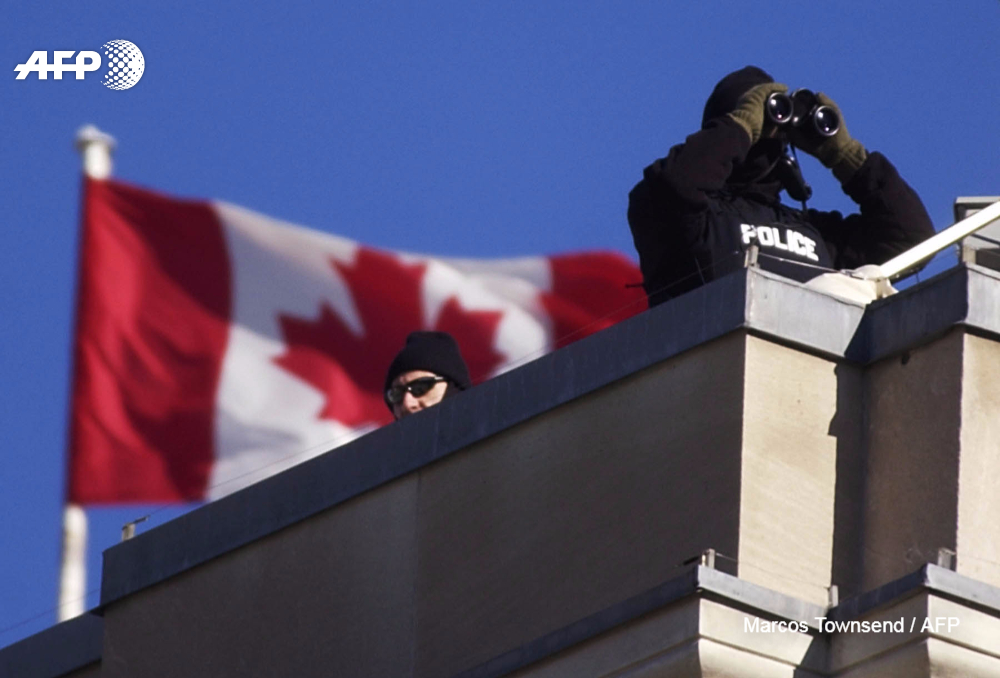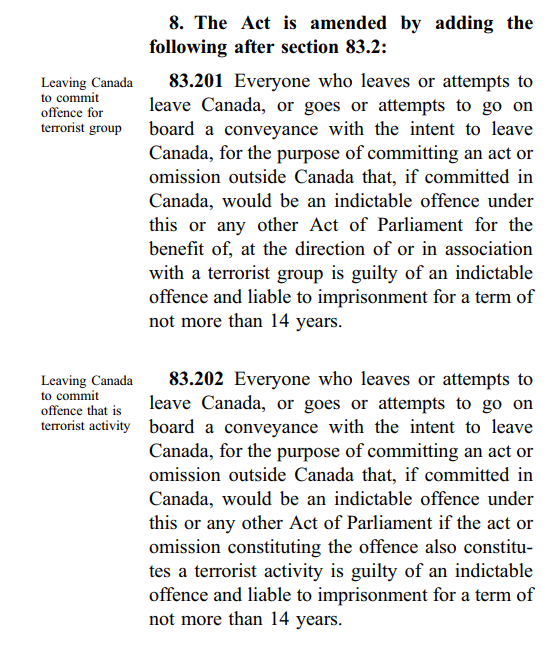
Justin Trudeau did not say Islamic State group members will be welcomed into Canadian society
- This article is more than seven years old.
- Published on July 11, 2018 at 19:34
- Updated on October 16, 2018 at 17:16
- 2 min read
- By Louis BAUDOIN-LAARMAN
"Watch: Trudeau explains why ISIS fighters have a right to move to Canada," a headline on FreeSpeechTime says.
The article focuses on a video of a town hall in Edmonton on February 2 during which Trudeau answered questions from the crowd. Asked how he thought his stance on the Islamic State group would help Canadians, Trudeau avoided directly answering the question and instead spoke at length about the importance of multiculturalism.
Nowhere in the quote does Trudeau say "ISIS fighters have a right to move to Canada".
The law
Taking part in terrorist activities abroad, or even intending to do so, is punishable by law under the Canadian criminal code.
Canadian legislation on terrorism has been strengthened since the rise of the Islamic State group.

The Combating Terrorism Act passed in 2013 created four new terrorism-related offences, including committing or assisting in acting out a terrorist act overseas, and planning on committing terrorist acts overseas. These charges are punishable by ten to fourteen years in prison.
According to Scott Bardsley, Senior Advisor for Communications of the Minister of Public Safety and Emergency Preparedness, "Canadian law enforcement actively pursues investigations, and they lay charges when there is evidence to support them."
If a Canadian suspected of having contributed to terrorist acts abroad cannot be charged due to a lack of evidence, other counter-terrorism tools are used by the Royal Canadian Mounted Police and the Canadian Security Intelligence Service.
Bardsley said these include, "investigations, surveillance and monitoring; intelligence gathering and lawful information sharing; peace bonds; no-fly lists; revocation of passports; and legally authorized threat reduction measures."
He added that the decision to use these tools "are professional, not political."
Fake foreign aid assertions
The FreeSpeechTime article further states that the Trudeau government has increased foreign aid to benefit certain governments, including $351 million for Hamas and the Palestinian Authority, $2 billion to Pakistan, $1.45 billion to Libya, $397 million to Egypt, $463 million to Jordan, $870 to Sudan, $359 million to Congo, $304 million to Kazakhstan, and $1.08 billion to Iraq.
According to the latest numbers from the Canadian government, Canada’s 2016-2017 foreign aid included CAN$50.89 million in the West Bank and Gaza, CAN$91.08 million in Pakistan, CAN$5.29 million in Libya, CAN$12.7 million in Egypt, CAN$157.06 million in Jordan, CAN$35.99 million in Sudan, CAN$91.71 million in the Democratic Republic of Congo, CAN$1.31 in Kazakhstan, and CAN$103.2 million in Iraq.
Additionally, Amy Mills, a Canadian Global Affairs spokesperson, told AFP by email that Canadian foreign aid recipients are international institutions such as the UN or the World Bank, or non-governmental organizations (NGOs), "not governments in power in a given country".
This post was updated on October 3, 2018 to correct calculations of Canada's foreign aid. This post was updated on October 16, 2018 to make clear the aid numbers are calculated in Canadian dollars.
Copyright © AFP 2017-2026. Any commercial use of this content requires a subscription. Click here to find out more.
Is there content that you would like AFP to fact-check? Get in touch.
Contact us
